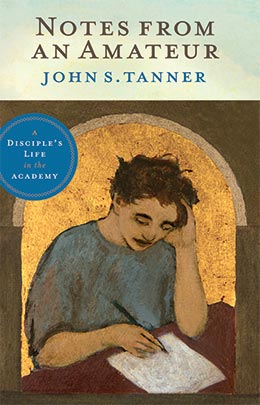“Adiaphora”—Of Things Indifferent
John S. Tanner, Notes from an Ameteur: A Disciple’s Life in the Academy (Provo, UT: Religious Studies Center; Salt Lake City: Deseret Book, 2011), 62–4.
My wife’s family likes to laugh about their memories of visiting a ward just outside their favorite national park when she was a girl. It seemed that each year they arrived on the Sunday before the summer social, and priesthood meeting would be given over to discussions about what color the popcorn balls should be. The discussion took most of the meeting, with animated opinions in support of various colors. Even today, when some minor issue is being discussed with great passion, my father-in-law often quips, “Should we have pink or green popcorn balls?”
Whether it’s the color of popcorn balls, the menu for young women camp, the age for patriarchal blessings, or what career to choose, we all know that there are many matters for which there is no one correct decision. Many issues are left to our own wisdom, judgment, and preference by a God who deliberately does not “command in all things” but leaves “many things” to our “own free will” (D&C 58:26–27). Note how many times in the Doctrine and Covenants the Lord uses the phrase “it mattereth not.” Some matters don’t really matter in the eternal scheme of things.
During the Reformation, theologians had a term for things that did not matter to church doctrine and practice. They called them adiaphora. I have found this Greek term, borrowed from Stoic philosophy, to be a useful addition to my conceptual lexicon. Adiaphora may be translated as “things indifferent.” It referred to matters that are neither commanded nor forbidden by the church.
The Reformers argued endlessly about what belonged in the category of adiaphora. Was it essential or indifferent if the priest wore a surplice? If the Communion table was level with the congregation or elevated? If communicants knelt or stood for Communion? If worshippers sang hymns? If hymns paraphrased the Psalms or were the product of human invention? And so forth. Great debates raged about the boundaries of “adiaphora” in a properly reformed church.
Though the term adiaphora is unfamiliar in our Church, the notion of things indifferent is not. Latter-day Saints are used to engaging in discussions about such issues as whether the Sabbath forbids watching the Super Bowl, whether caffeinated cola drinks are permissible, whether to watch certain movies, or how to vote. While I would not argue that all these matters are strictly indifferent, they are matters on which faithful members can and do legitimately disagree.
So are many intramural differences at BYU. We may, and often do, differ about the relative merits of this or that theory, methodology, policy, or political issue. Most academic debates fall outside the scope of core doctrine or settled board policy; most belong in the domain of the “adiaphora”—questions for which there is no one religiously correct answer and about which the Church takes no official stand.
At BYU we are unified in our support for the university mission and the gospel. At the same time, as one would expect at an institution that gathers together so many bright and thoughtful people for the purpose of seeking knowledge, there exists a broad range of opinions at BYU about most questions. This is as it should be at a university, whose purpose is to engage in the ongoing examination and discovery of knowledge. As Milton observed, “Where there is much desire to learn, there of necessity will be much arguing, much writing, many opinions; for opinion in good men is but knowledge in the making.” [1]
The Reformers developed a sage saying to guide those negotiating the boundaries of the “adiaphora.” It has been incorporated in BYU’s Statement on Academic Freedom: “In essentials let there be unity; in non-essentials, liberty; and in all things, charity.” [2] The Latin original reads, “In necessariis unitas, in non-necessariis libertas, in omnibus caritas.” As a distinctively Latter-day Saint university, let us cultivate the wisdom to distinguish essentials from nonessentials and the charity to work through our differences amicably. For charity is never a matter of indifference, even with respect to popcorn balls.
Notes
[1] John Milton, Areopagitica, in The Complete Poetry and Essential Prose of John Milton, ed. William Kerrigan, John Rumrich, and Stephen M. Fallon (New York: Random House, 2007), 958.
[2] B. H. Roberts, in Conference Report, October 1912, 30. The source of Roberts’s citation is the Latin maxim “In necessariis unitas, in non-necessariis (or, dubiis) libertas, in utrisque (or, ominibus) caritas.” See Philip Schaff, History of the Christian Church, 2nd ed. (New York: Charles Scribner’s Sons, 1915), 6:650.
